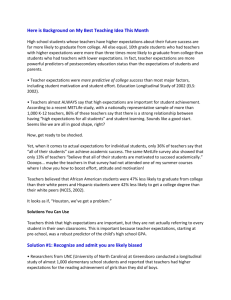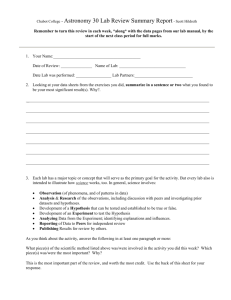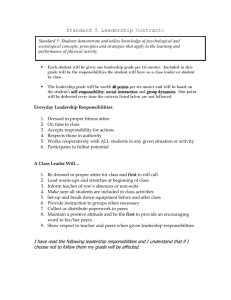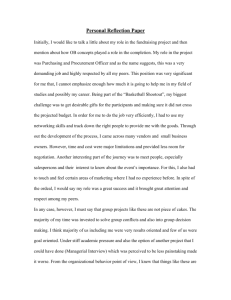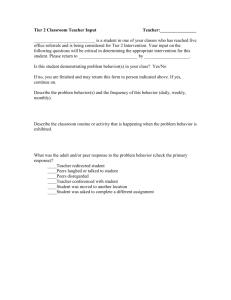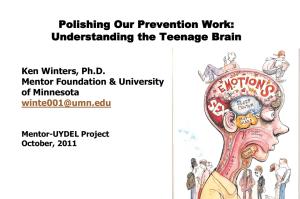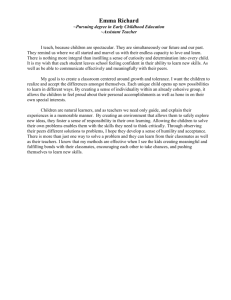In One Peer and Out the Other: Preparing Students for the
advertisement
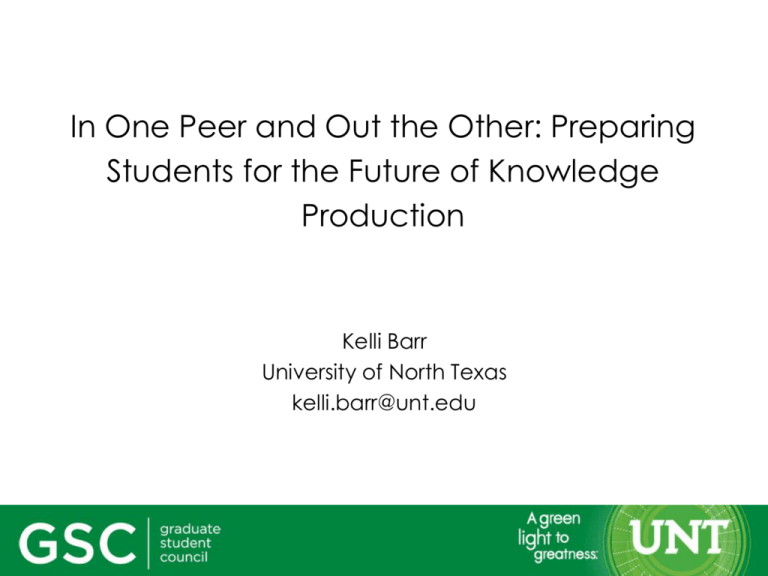
In One Peer and Out the Other: Preparing Students for the Future of Knowledge Production Kelli Barr University of North Texas kelli.barr@unt.edu Session Abstract In addition to representing graduate student voices, graduate student governments can also function to expand our constituents’ horizons of opportunity. In particular, graduate student governments can play a vital role in raising awareness regarding an important and volatile debate currently gripping the academy. Discussions regarding the value of interdisciplinary and transdisciplinary research raise important questions for young scholars: What is the future of the disciplinary structures that govern our education as graduate students? For example, is it wise for budding researchers to yield to pressures to specialize early and strongly in a narrow field of inquiry, or to communicate primarily (or, perhaps, only) with a small and select group of professional peers? Do we have any other choice? This session explores the governance dimensions of disciplinary structures within the academy. Of particular focus will be the most effective role for graduate student governments in this critical debate concerning the gulf between academic knowledge production and its uptake by broader communities. The State of knowledge: Who are our peers? • Disciplinary peers • Multidisciplinary (MD) peers • Interdisciplinary (ID) peers • Transdisciplinarity (TD) peers Who have mostly been our peers? • Disciplinary peers • Multidisciplinary peers • Interdisciplinary peers • Transdisciplinarity peers If ID is the answer, what is the problem? The problem is with the problems: - Climate change (or, climate chaos) Pervasive environmental degradation Widespread social inequality Sustainability/sustainable development Political and economic instability What is the value of ID? Unidirectional knowledge flow: Academics Society Problems have been defined historically without inclusion of those who experience those problems In short: The academy has disciplines; the world has problems. How does this relate to self-governance? Graduate and professional student organizations (GPSOs) can be critical for building institutional support to provide opportunities for students to pursue many different types of research. Institutional barriers • Research culture – Emphasis on one ‘right’ model • Assessment or evaluation processes – Indicators of quality/impact • Publication industries • Philosophical prejudices What can we do? • Be a resource for openly discussing research strategies – Research quality/impact assessment – Collect evidence to advocate to your administration • Highlight and reward a diversity of disciplinary, MD, ID, and TD research on your campus – Focus on broader impacts • Work with administration to provide small grant funding – Develop MD, ID, and TD research habits as grads • Build relationships between academy and surrounding community for students to take advantage of
